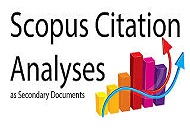Identifikasi Hambatan Belajar Mahasiswa Universitas Sriwijaya Pada Masa Pandemi Covid-19
DOI:
https://doi.org/10.33394/jk.v7i3.3574Keywords:
Learning Barries, Student, Covid-19.Abstract
References
Abuhammad, S. (2020). Barriers to distance learning during the COVID-19 outbreak: A qualitative review from parents’ perspective. Heliyon, 6(11), e05482. https://doi.org/10.1016/j.heliyon.2020.e05482
Anugrahana, A. (2020). Hambatan, Solusi dan Harapan: Pembelajaran Daring Selama Masa Pandemi Covid-19 Oleh Guru Sekolah Dasar. Scholaria: Jurnal Pendidikan Dan Kebudayaan, 10(3), 282–289. https://doi.org/10.24246/j.js.2020.v10.i3.p282-289
Arifa, F. N. (2020). Tantangan Pelaksanaan Kebijakan Belajar Dari Rumah Dalam Masa Darurat Covid-19. Info Singkat;Kajian Singkat Terhadap Isu Aktual Dan Strategis, XII(7/I), 6. http://berkas.dpr.go.id/puslit/files/info_singkat/Info Singkat-XII-7-I-P3DI-April-2020-1953.pdf
Becker, K., Newton, C., & Sawang, S. (2013). A learner perspective on barriers to e-learning. Australian Journal of Adult Learning, 53(2), 211–233.
Christiana, E. (2020). Burnout akademik selama pandemi covid 19. Prosiding Seminar Nasional Bimbingan Dan Konseling Mengukuhkan Eksistensi Peran BK Pasca Pandemi Covid-19 Di Berbagai Setting Pendidikan, 8–15. http://pasca.um.ac.id/conferences/index.php/snbk/article/view/1129
Ciroma, Z. I. (2014). Learning Barriers: Challenges and Concerns. Academic Journal of Interdisciplinary Studies, 3(7), 142–145. https://doi.org/10.5901/ajis.2014.v3n7p142
Fitriyani, Y., Fauzi, I., & Sari, M. Z. (2020). Motivasi Belajar Mahasiswa Pada Pembelajaran Daring Selama Pandemik Covid-19. Jurnal Kependidikan : Jurnal Hasil Penelitian Dan Kajian Kepustakaan Di Bidang Pendidikan, Pengajaran, Dan Pembelajaran, 6(2), 165–175. https://doi.org/10.23917/ppd.v7i1.10973
Hasanah, A., Sri Lestari, A., Rahman, A. Y., & Danil, Y. I. (2020). Analisis Aktivitas Belajar Daring Mahasiswa Pada Pandemi COVID-19. Karya Tulis Ilmiah (KTI) Masa Work From Home (WFH) Covid-19 UIN Sunan Gunung Djati Bandung Tahun 2020, 4–8. http://digilib.uinsgd.ac.id/id/eprint/30565
Lassoued, Z., Alhendawi, M., & Bashitialshaaer, R. (2020). An exploratory study of the obstacles for achieving quality in distance learning during the covid-19 pandemic. Education Sciences, 10(9), 1–13. https://doi.org/10.3390/educsci10090232
Moh, M. (2020). Moh . Muslim : Manajemen Stress pada Masa Pandemi Covid-19 †193. Jurnal Manajemen Bisnis, 23(2), 192–201.
Muilenburg, L. Y., & Berge, Z. L. (2005). Students Barriers to Online Learning: A factor analytic study. Distance Education, 26(1), 29–48. https://doi.org/10.1080/01587910500081269
Oktawirawan, D. H. (2020). Faktor Pemicu Kecemasan Siswa dalam Melakukan Pembelajaran Daring di Masa Pandemi Covid-19. Jurnal Ilmiah Universitas Batanghari Jambi, 20(2), 541. https://doi.org/10.33087/jiubj.v20i2.932
Pawicara, R., & Conilie, M. (2020). Analisis Pembelajaran Daring Terhadap Kejenuhan Belajar Mahasiswa Tadris Biologi Iain Jember di Tengah Pandemi Covid-19. ALVEOLI: Jurnal Pendidikan Biologi, 1(1), 29–38.
Rosali, E. S. (2020). Aktifitas Pembelajaran Daring Pada Masa Pandemi Covid -19 Di. Geography Science Education Journal (GEOSEE), 1(1), 21–30. https://www.researchgate.net/publication/340917125_Kendala_Pelaksanaan_Pembelajaran_Jarak_Jauh_PJJ_dalam_Masa_Pandemi/stats
Sadikin, A., & Hamidah, A. (2020). Pembelajaran Daring di Tengah Wabah Covid-19. Biodik, 6(2), 109–119. https://doi.org/10.22437/bio.v6i2.9759
Sari, I. P., Purwasih, R., & Nurjaman, A. (2017). Analisis Hambatan Belajar Mahasiswa Pada Mata Kuliah Program Linear. JIPM (Jurnal Ilmiah Pendidikan Matematika), 6(1), 39. https://doi.org/10.25273/jipm.v6i1.1569
Yuwono, S. D. (2020). Profil Kondisi Stres Di Masa Pandemi Covid-19 Sebagai Dasar Intervensi Dalam Praktek Mikrokonseling. Ristekdik: Jurnal Bimbingan Dan Konseling, 5(1), 132–138.
Downloads
Published
How to Cite
Issue
Section
Citation Check
License
License and Publishing AgreementIn submitting the manuscript to the journal, the authors certify that:
- They are authorized by their co-authors to enter into these arrangements.
- The work described has not been formally published before, except in the form of an abstract or as part of a published lecture, review, thesis, or overlay journal.
- That it is not under consideration for publication elsewhere,
- That its publication has been approved by all the author(s) and by the responsible authorities – tacitly or explicitly – of the institutes where the work has been carried out.
- They secure the right to reproduce any material that has already been published or copyrighted elsewhere.
- They agree to the following license and publishing agreement.
Authors who publish with JK agree to the following terms:
- Authors retain copyright and grant the journal right of first publication with the work simultaneously licensed under a Creative Commons Attribution License (CC BY-SA 4.0) that allows others to share the work with an acknowledgment of the work's authorship and initial publication in this journal.Â
- Authors are able to enter into separate, additional contractual arrangements for the non-exclusive distribution of the journal's published version of the work (e.g., post it to an institutional repository or publish it in a book), with an acknowledgment of its initial publication in this journal.
- Authors are permitted and encouraged to post their work online (e.g., in institutional repositories or on their website) prior to and during the submission process, as it can lead to productive exchanges, as well as earlier and greater citation of published work.
- Open Data Commons Attribution License, http://www.opendatacommons.org/licenses/by/1.0/ (default)

This work is licensed under a Creative Commons Attribution-ShareAlike 4.0 International License.








